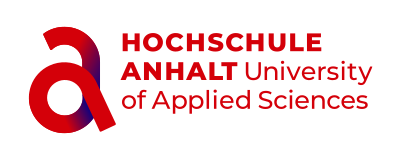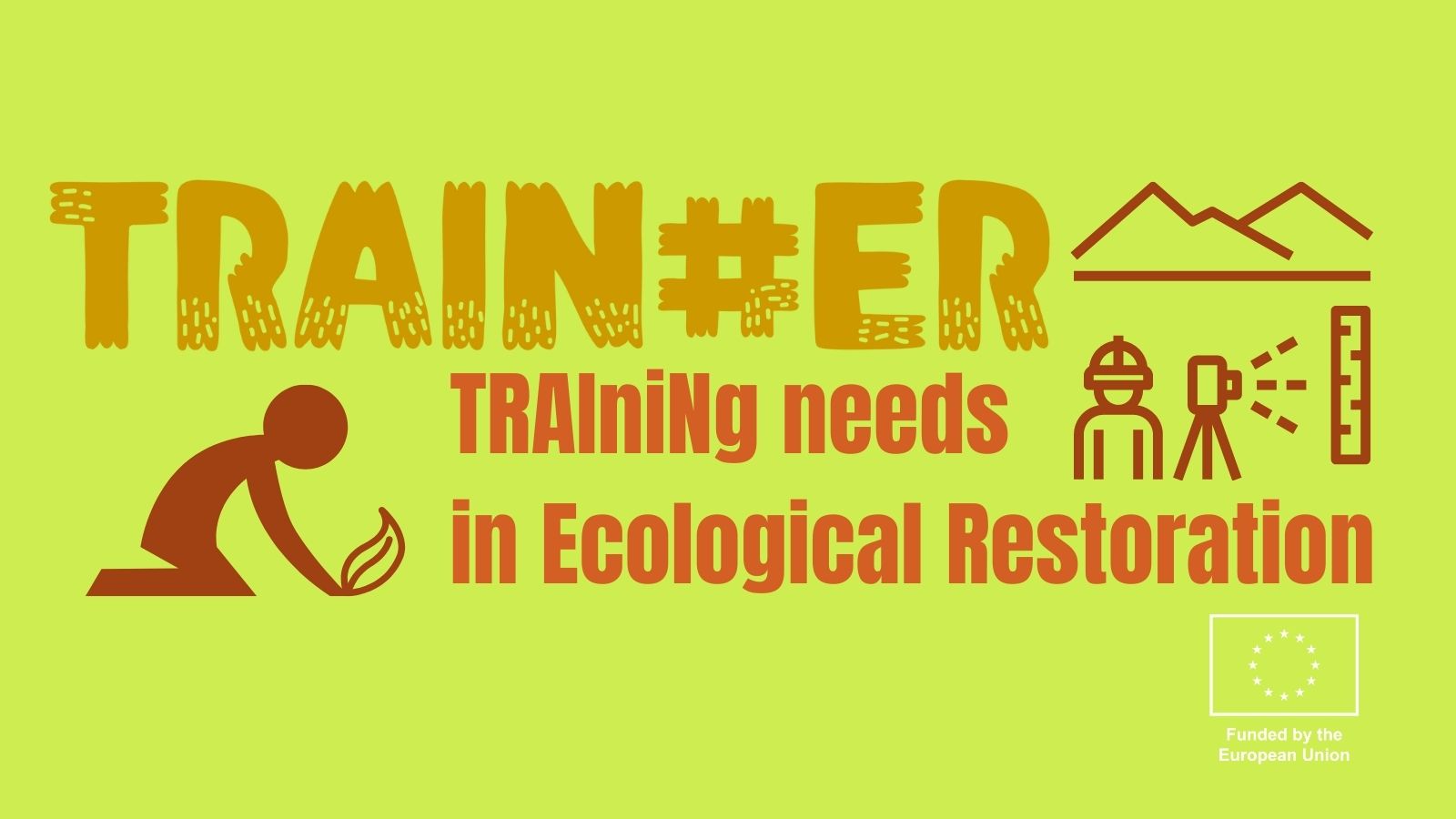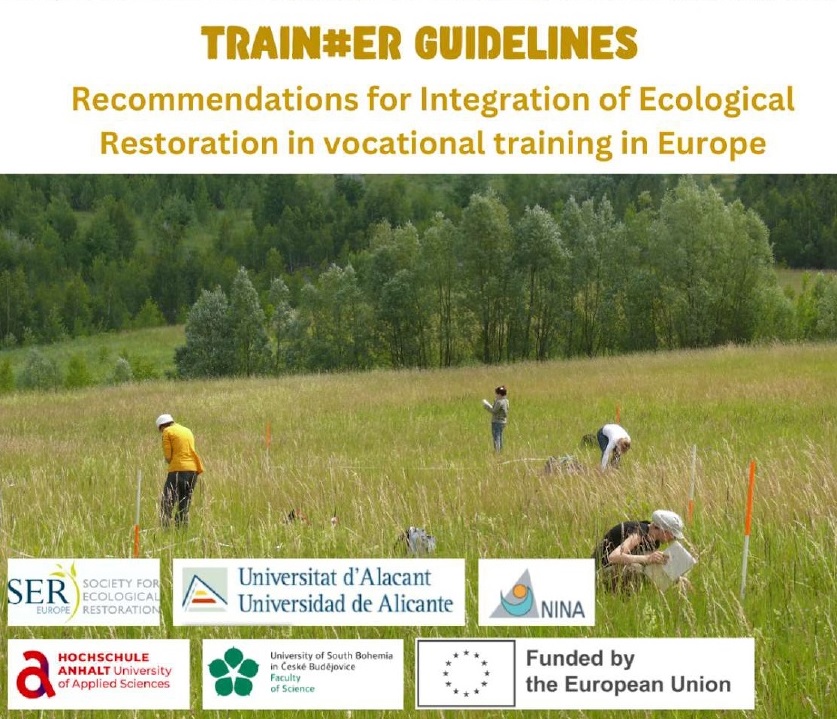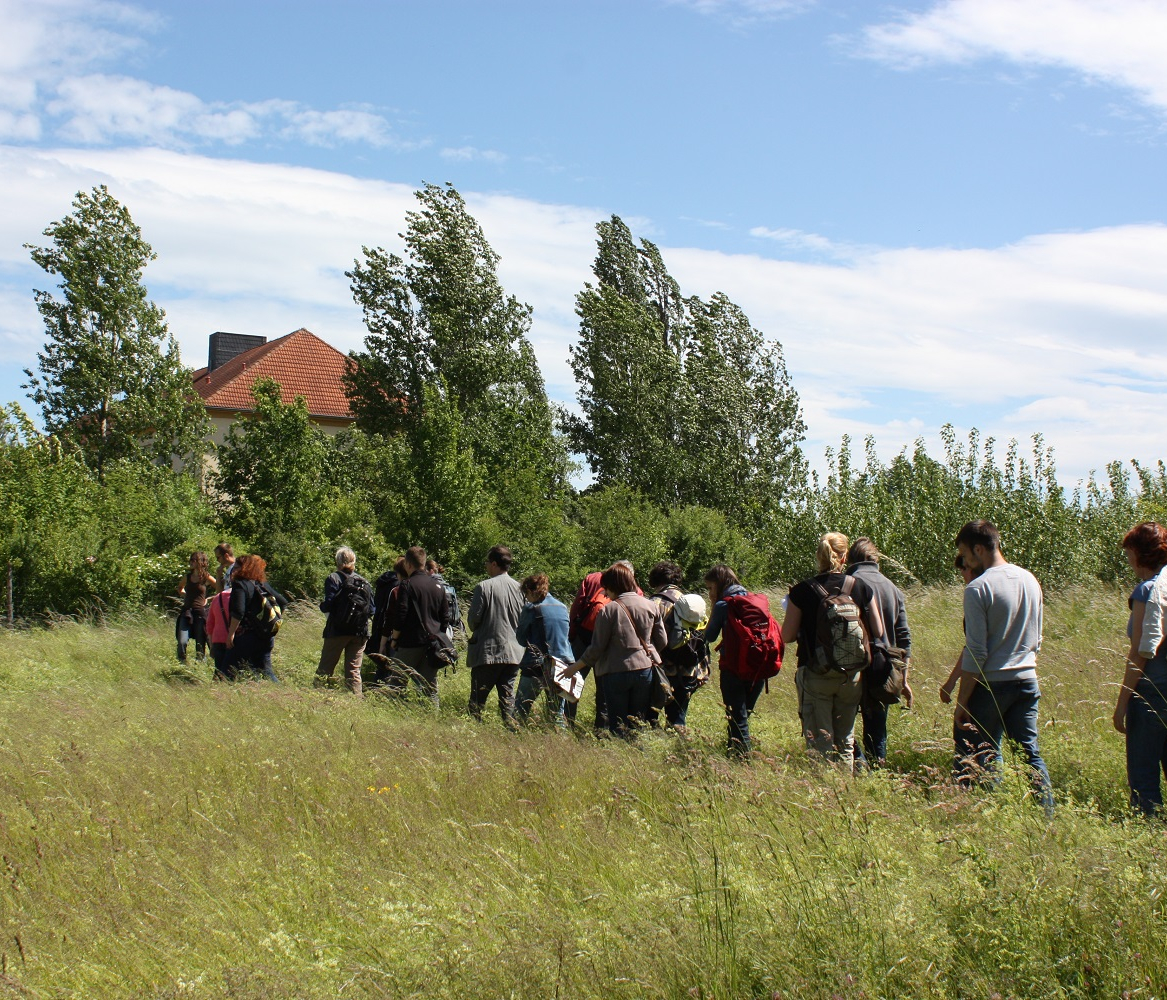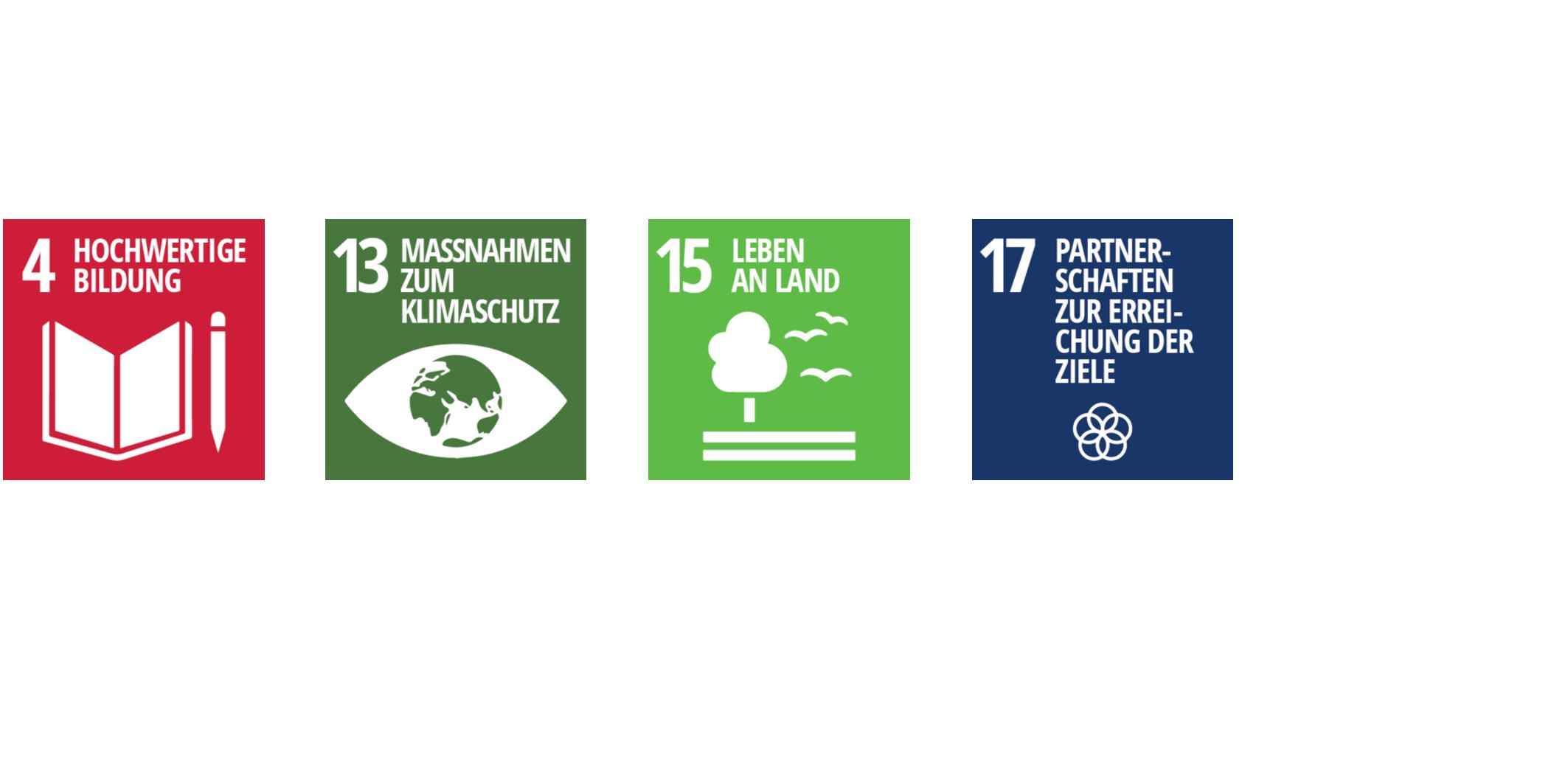Motivation of the project
Motivation of the project
The TRAIN#ER project aims to identify the knowledge needs in the field of ecological restoration for relevant professional groups and to derive recommendations for a more effective knowledge transfer into professional practice together with the project partners. For this purpose, knowledge producers and knowledge users as well as their interactions are identified and the type of available and demanded knowledge and the information channels used so far are determined. Through our analyses, gaps in knowledge production and transfer will be revealed, thus laying the foundations for future improvement of VET programmes.
Specific project objectives:
- Establishing an up-to-date profile of requirements for education and training in ecological restoration in the public, private and non-profit sectors.
- Identifying and characterising demonstration sites that can be used for knowledge transfer in the field of ecological restoration.
- Reviewing the profile of existing education and training programmes with regard to ecological restoration.
- Identifying opportunities for improved career opportunities through the integration of ecological restoration into education and training programmes.
- Cross-national analyses and recommendations from the project consortium.
- Communication of project results at national and European level.
Project end and Outlook
Project end and Outlook
The TRAIN#ER project ends on 28 February 2023. During the project period, we conducted an online survey and a focus group interview in each of the four project countries as well as at the European level. We would like to thank all participants of surveys and focus group interviews for their valuable contribution to the project!
The analyses of the surveys and focus group interviews have given us interesting insights into the topics of knowledge production, knowledge transfer and the need for teaching content and forms in the field of ecological restoration. At a workshop at the University of South Bohemia in České Budějovice we had the opportunity to discuss the national results with our project partners from Spain, Norway and the Czech Republic. As part of the workshop, a Community of Practice (CoP) was initiated to support the synthesis, analysis and recommendations from the TRAIN#ER project. All project results will be used to advance the knowledge transfer between science and practice by identifying key issues in the field of Ecological Restoration (ER).
The following take-home messages were derived from the Project:
1. Improved cooperation within European and national networks is most important to broaden and strengthen opportunities and outcomes in ER education.
2. Tailored learning materials on ER topics are necessary to improve ER training in education.
3. Internet platforms are useful to facilitate access to relevant ER materials as Open Educational Resources, which should be easily accessible and easy to understand.
4. Demonstration sites and examples of good and bad practices are highly useful for knowledge transfer into Vocational Education and Training (VET) and continuous education.
5. There is a need to improve existing VET and continuous education curricula and to qualify teachers in ER-relevant topics.
6. New education programs focused on ER are in great demand.
More detailed project results are summarized in the following documents:
Examples for demonstration sites in Germany, Norway, Spain and Czech Republic
Report on the partner workshop
Study programs and course related to ecological restoration in the project countries
For further information, please visit the official TRAIN#ER - Website.


Project consortium:
Society for Ecological Restoration, European Chapter (lead), Jordi Pietx (jordi.pietx@ser-europe.org)
Anhalt University of Applied Sciences (Prof. Dr. Sabine Tischew, Prof. Dr. Anita Kirmer, Prof. Dr. Markus Meyer, M.Sc. Vera Grünhage) (Germany)
Universidad de Alicante (Spain)
Jihoceska Univerzita V Ceskych Budejovicich (Czech Republic)
Stiftelsen Norsk Institutt for Naturforskning (Norway)
Senter for Opplæring I Anleggsgartnerfaget Norway
Nature Conservation Agency of the Czech Republic
Conselleria de Agricultura, Medio Ambiente, Cambio Climático y Desarrollo Rural Spain
Associated Partner:
German Agricultural Society e.V.
Funded by Erasmus+, Small-scale Partnerships
Project code: 2021-2-BE02-KA210-VET-000049240
Duration: 03/2022 - 02/2023

